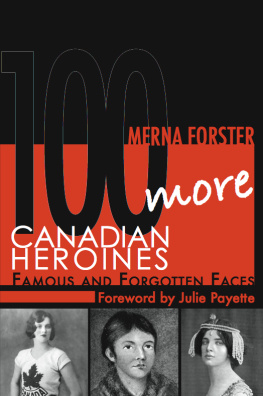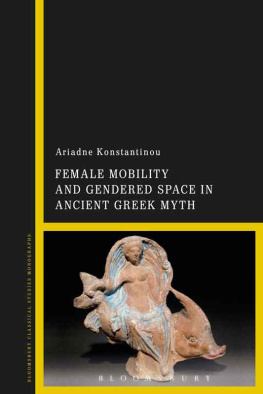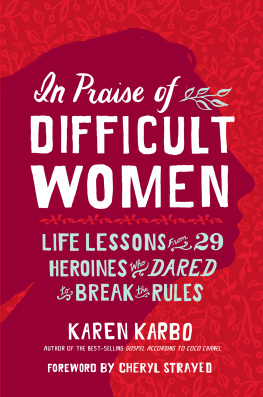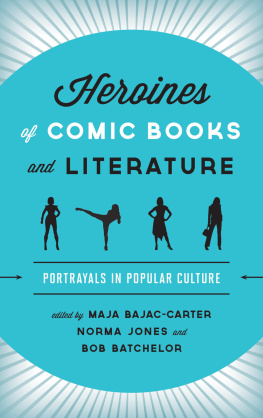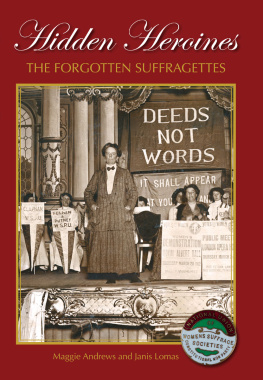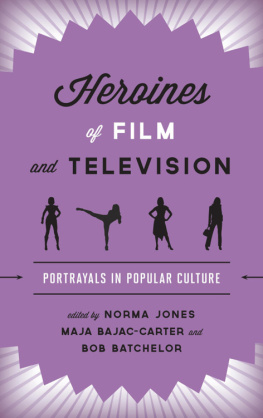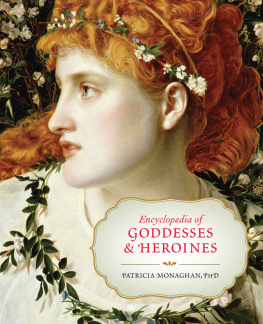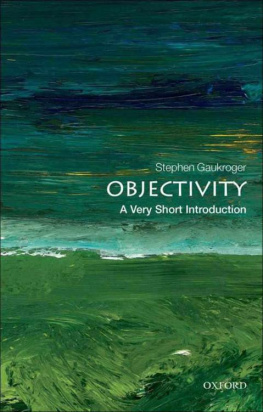Zambreno - Heroines
Here you can read online Zambreno - Heroines full text of the book (entire story) in english for free. Download pdf and epub, get meaning, cover and reviews about this ebook. City: Place of publication not identified, year: 2014, publisher: HarperCollins;Harper Perennial, genre: Detective and thriller. Description of the work, (preface) as well as reviews are available. Best literature library LitArk.com created for fans of good reading and offers a wide selection of genres:
Romance novel
Science fiction
Adventure
Detective
Science
History
Home and family
Prose
Art
Politics
Computer
Non-fiction
Religion
Business
Children
Humor
Choose a favorite category and find really read worthwhile books. Enjoy immersion in the world of imagination, feel the emotions of the characters or learn something new for yourself, make an fascinating discovery.

- Book:Heroines
- Author:
- Publisher:HarperCollins;Harper Perennial
- Genre:
- Year:2014
- City:Place of publication not identified
- Rating:3 / 5
- Favourites:Add to favourites
- Your mark:
- 60
- 1
- 2
- 3
- 4
- 5
Heroines: summary, description and annotation
We offer to read an annotation, description, summary or preface (depends on what the author of the book "Heroines" wrote himself). If you haven't found the necessary information about the book — write in the comments, we will try to find it.
Heroines — read online for free the complete book (whole text) full work
Below is the text of the book, divided by pages. System saving the place of the last page read, allows you to conveniently read the book "Heroines" online for free, without having to search again every time where you left off. Put a bookmark, and you can go to the page where you finished reading at any time.
Font size:
Interval:
Bookmark:

This book is dedicated to my friend Suzanne Scanlonto writing ourselves as our own characters.
This book is also for the girls who still seem, as they did in Virginia Woolf s time, so fearfully depressed.
Contents
S he was supposed to fuck a god high up on his mountaintop, but she refused. She wouldnt listen to Apollos reasoning. So he cursed her, a life sentence. He said, Sure, you can live forever, as many grains of sand in your hand, but that young lovely body will be gone, you will wrinkle up into nothingness. Who will love you now? Who will listen?
Eventually her body was kept in a jar, and then there was only her voice left.
Only her voice left.
And then not really her voice at all.
The rhythm of my madwomens lives: a long scream followed by absolute silence.
At the beginning, I think of endings.
The mad wives of modernism who died in the asylum. Locked away, rendered safe. Forgotten, erased, or rewritten. Vivien(ne) Eliot, whose alter ego in her writing was Sibylla, the voice in the jar that begins her husbands poem The Waste Land. Zelda Fitzgerald, the tarnished golden girl of her husbands legend, who burned to death in an asylum fire in Asheville, North Carolina. All that remained to identify her: a single charred slipper. Jane Bowles stroked out, later buried in an unmarked grave in Mlaga, Spain, while her husband Paul never stopped writing.
Sitting at the mouth of my cave, I string together fragments on paper. My scraps scattering to the wind if unread.
Out of this narrative will emerge a chalk outline. It is the body of a woman.
These fragments I have shored against my ruins.

2005
W e have just moved back to Chicago from a year spent in London. Most days I cannot be alone in my little red office, my hermitage on Hermitage Avenue in the Ukrainian Village neighborhood, trapped like a Trappist, as Djuna Barnes quipped of her monkish isolation at Patchin Place in the Village, in the years after Paris, after Thelma Wood and Nightwood . I am trying to learn how to be a serious writer and write important books, yet I cannot deal with all of the silence. All summer accompanying John to the Newberry Library, limping in my new sandals, bathing my bleeding sweaty feet in the downstairs sink like I am some homeless woman, changing the bandages that melt off in the heat. I sit in Washington Square Park and write in my notebook, unable to last for long taking notes in one of the librarys reading rooms. Johns job is to sit in a glassed-off cell and watch people to make sure they dont steal any rare books. I escape downstairs to the visitors room, observing people as they buy Snickers and sodas from the vending machines. I am always unable to endure institutional settings. I usually find more alienation in the deadly quiet of such environments, like the girl-opposite of the narrator in Sartres Nausea . A flneuse, I stroll around the Gold Coast and go in and out of shops, buying nothing, maybe a lipstick at Marshall Fields, feeling the cool of the AC alternate with the heat of outside.
Yes, this is when I first became enthralled by the mad wives, my eternal reference point; when I began reading the lives of these women often marginalized in the modernist memory project. They have been with me for as long as I have tried to writelike ghostly tutors. Never having taken creative writing, save for one disastrous workshop as a journalism undergrad, I felt alone and friendless in the process of attempting to create myself as a writer. Minus a community, I invented one. I entered into alliances with my paper soulmates, writes Hlne Cixous in her essay Coming to Writing. These women served as an invisible communitylike in Susan Sontags play Alice in Bed , about the brilliant letter writer and diarist Alice James (sister-of-Great-Men, Henry and William), except Im the neurasthenic, and they are all hovering over me. Or like in Judy Chicagos 80s installation The Dinner Party , where she lays out place settings for famous heroines both real and fictional.
My invisible communityyes, they too were made invisible.
I recently saw Chicagos installation at the Brooklyn Museum, and what struck me was how cheap the silverware seemed. And yet the tapestries were so lovingly and laboriously woven.
2009
A kron, Ohio. John has been hired to curate and organize a small collection of rare books at the university here, the centerpiece of which was the gift of a rubber industrialist, who owned a great deal of the book collectors canona few early Shakespeare folios, Samuel Johnsons Dictionary , two first editions of Walt Whitmans Leaves of Grass . The position is tenure-tracked (which, in the rules of marital chess, trumps a fairly satisfying slate of adjunct work back home in ChicagoKing takes Queen).
The wife will just have to find something, of course. Adjunct, adjunctive.
We live in a squat Victorian building near the university. We move in sight unseen (this has become a habit for us). The adjacent building and ours are the only apartment complexes on our rather suburban street. Backyards littered with all the paraphernalia of childhood, as Esther Greenwood observes with a shudder in Sylvia Plaths The Bell Jar . Children with their shattering screams. Vivien(ne)s line added to The Waste Land, should be delivered in your best imitation Cockney screech: What you get married for if you dont want children .
My office is the apartments solarium framed by light and windows. At first I thought, yeah, alright. A sort of writing retreat. A room of ones own. All that. Virginia Woolf prescribed the bucolic of the country. A calm respite from the citys hysteria. (I was so panicky all the time where we last lived, on 18th Street in Chicago, a man murdered on our street the week we moved out, children playing calmly near his chalk outline. Always our moves seem like sudden, frantic escapes, not properly considering the next because we are so anxious to remove ourselves from the former.)
I am told, rather abruptly by the head of the English department here, that I am not qualified to teach literature. Male professors with no interest in the subject teach womens literature instead. I am reminded of my lack of a terminal degree. (Why does the idea always feel like a death?)
I find work teaching Introduction to Womens Studies, writing SUFFRAGE on the board to bored and sometimes bemused and occasionally bitter faces. Packed classrooms. A campus diversity requirement. The university here is alarmingly Christiana megachurch dubbed The Chapel, one of the universitys benefactors, sits on the edge of the campus. One of their ministries is a Pray Until Youre Straight program called Bonds of Iron. The working conditions here are much worse than in Chicagoit is illegal for part-timers to unionize in Ohio, so I have no office or even much of a communal workspace, and the pay is dismal.
As soon as we land here I begin wishing ardently to get out of this black-and-white Midwestern landscape, a town formerly industrious, its factories now sit like the vacant, rotting husks of industry. The sad Wizard of Oz window display for Christmas in one of the emptied downtown storefronts. Clark Gable once worked here in one of the tire factoriesit was a step up from his fathers farm but he too left for dreams of grandeur. Who wouldnt leave? Everyone asks: Why? About our move. The economy, you know. I mumble. A great job. (I want to really say: I DONT FUCKING KNOW . But I dont. I tell the mutual lie of marriage.)
The nearby Cuyahoga Valley is beautiful in its autumnal blaze. But the city itself so often Midwestern gothic. Strange sightings. The woman wandering into the Radio Shack with a half-eaten hot-dog in one hand, fingering the merchandise with the ketchup- and mustard-stained other. Another woman padding down the emptied-out Main Street with duct-tape over her face, clutching a Big Gulp (John observes: the kidnapped on her lunch break). We bond more intensely in our mutual dystopic vision. (Our favorite shared writer of the moment is Thomas Bernhard, when we first met it was Beckett.) A different sort of alienation than when we lived in London, or moved back to Chicago.
Font size:
Interval:
Bookmark:
Similar books «Heroines»
Look at similar books to Heroines. We have selected literature similar in name and meaning in the hope of providing readers with more options to find new, interesting, not yet read works.
Discussion, reviews of the book Heroines and just readers' own opinions. Leave your comments, write what you think about the work, its meaning or the main characters. Specify what exactly you liked and what you didn't like, and why you think so.

